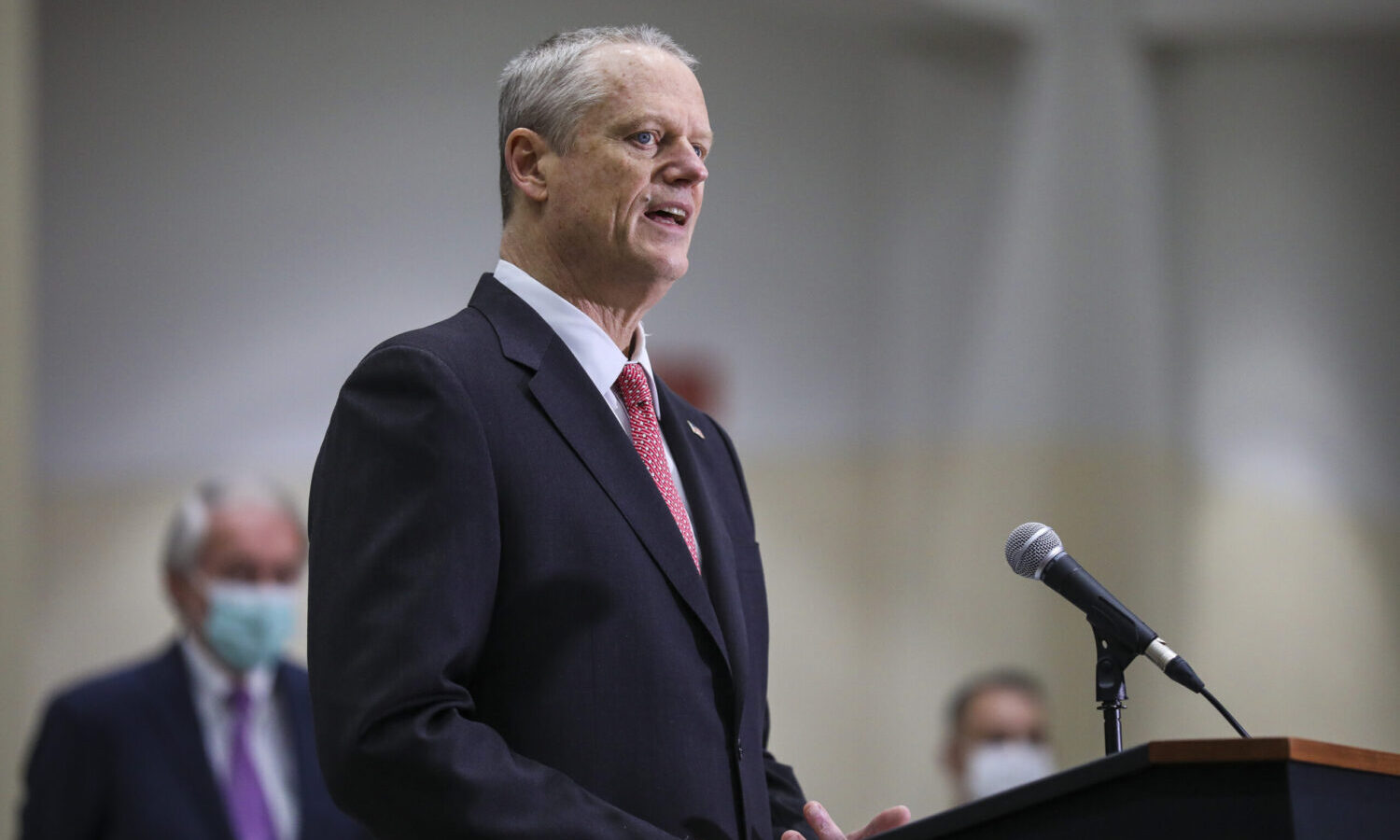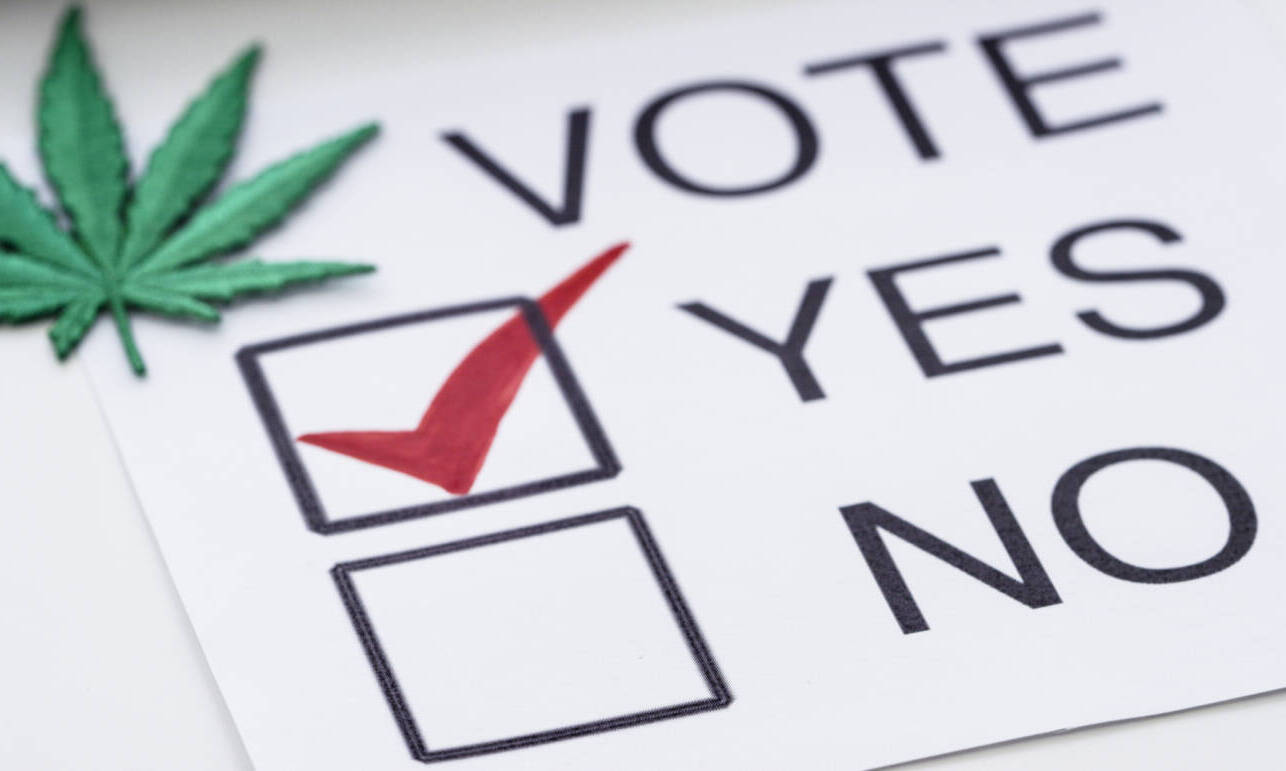
Massachusetts Gov. signs compromise marijuana bill but scraps controversial section
Through
Massachusetts Gov. Charlie Baker signed a compromise marijuana bill into law dealing with social justice and taxes. Thursday’s move comes nearly six years after the Bay State legalized recreational cannabis use.
Senate Bill 3096 aims to promote diversity in the sector and regulate the Host Community Agreement (HCA) between cannabis companies and municipalities. It proposes allocating 15% of the money from the Marijuana Regulation Fund, which is fed by the state’s cannabis use tax, various operating fees and industry penalties, to a new social justice trust fund. The new fund’s mission will be to provide grants and loans to people from communities hardest hit by the drug war who are now interested in entering the cannabis industry.
Part of the bill also includes guidelines for a process for cities to allow on-site marijuana consumption facilities or cannabis cafes.
Photo by Olena Ruban/Getty Images
RELATED: The law legalizing cannabis on the Massachusetts governor’s desk needs an overhaul — here’s why
According to Sonia Chang-Díaz, Senate chair of the Cannabis Policy Committee, the compromise bill “addresses some of the industry’s biggest problems.”
The Republican cover removed only one controversial section from the bill — a proposal to conduct a study of medical marijuana use among students during school hours, State House News reported. The American Academy of Pediatrics had previously opposed the proposed study of medical marijuana use in schools.
No medical marijuana in schools
While Senator Michael Rodrigues, Ways and Means committee chair and senior Senate conference caller, previously said the study could help students who would largely benefit from medicinal cannabis, the American Academy of Pediatrics (AAP) disagreed.
“The AAP opposes medical marijuana outside of the US Food and Drug Administration’s regulatory process,” an academy spokesman told the Boston Herald.
The Association of Pediatricians says there isn’t enough data on proper dosage and side effects to make a decision.
“There are no research studies on the use of medical marijuana in teens, so actual indications, appropriate dosage, effects, and side effects are unknown. The only available data on medical marijuana in the pediatric population is limited to use in children with severe refractory seizures,” the organization advised parents.
The governor agreed with the AAP on this proposal and decided to leave it out of the marijuana compromise law.
Baker said the measure, as written, is “highly mandated — and made it clear that the agencies charged with conducting the study need to find ways to make medical marijuana widely available in schools, rather than to.” consider whether such authorization is advisable.
RELATED: Child poisoning cases rise as Massachusetts cannabis sales grow
“The ballot initiatives that legalized medical marijuana in 2012 and 2016 included strict measures to keep marijuana out of K-12 schools and schoolchildren. Both statutes specifically stated that under no circumstances would marijuana be allowed on school property,” the governor wrote in a letter to lawmakers. “Because the study proposed in Section 26 clearly works against these important and established protections and disregards the clear intentions of voters in legalizing marijuana use, I cannot endorse this portion of the bill.”
 Photo by FatCamera/Getty Images
Photo by FatCamera/Getty Images
Monumental step
At a Cannabis Control Commission meeting hours before the governor signed the law into law, Commissioner Ava Callender Concepcion urged her colleagues to take a minute to “recognize the importance of this moment and the magnitude of this impact. I’m not saying that this single piece of legislation will solve every problem facing the cannabis industry, but it’s a huge step,” she said. “This is monumental.”
Chang-Díaz commented, “This law will level the playing field where wealthy companies have been able to buy their way out through the licensing process and too many local small business owners and black and brown entrepreneurs have been locked out. The reforms and funding we have fought so hard for will change the game and once again position Massachusetts as a leading state for racial justice in our cannabis economic policies. I am so grateful to the many community members and grassroots leaders who have come together and kept the state’s feet on the fire to make this possible.”
Shanel Lindsay, a marijuana advocate who participated in the 2016 initiative’s petitions, said the governor and lawmakers “made history with this vital — and overdue — grant and loan fund.”
“This legislation is an important step forward in resolving the harms of prohibition and over-policing, and will provide an important avenue for families of color to create jobs in their community and generate generational wealth,” said Lindsay, who is also a co-founder of is equal opportunity now.
This article originally appeared on Benzinga and has been republished with permission.

Post a comment: